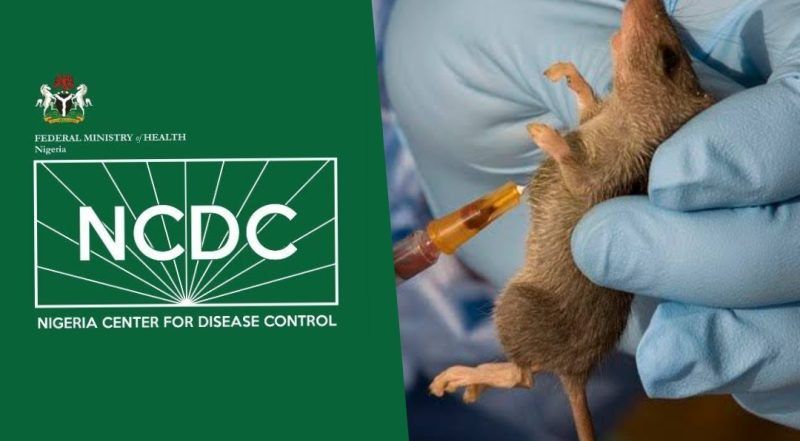
The Nigeria Centre for Disease Control and Prevention (NCDC) has raised alarm over the continued spread of Lassa fever, confirming 168 deaths and 906 confirmed cases across 21 states so far in 2025.
In its epidemiological week 38 report, the agency said 4,543 suspected cases of the rodent-borne disease had been recorded nationwide, with a case fatality rate (CFR) of 18.7 percent — nearly double the national target of below 10 percent.
Ondo, Edo, Taraba, Bauchi Remain Epicentres
According to the NCDC, Ondo, Edo, Taraba, and Bauchi states remain the hardest hit, accounting for 67 percent of all confirmed infections.
Ondo continues to record the highest burden, followed closely by Edo and Bauchi.
Other affected states include Ebonyi, Benue, Kogi, Gombe, Plateau, Kaduna, Nasarawa, Enugu, Delta, Anambra, Rivers, Borno, Oyo, Ogun, the Federal Capital Territory (FCT), and Lagos.
The agency said 106 local government areas (LGAs) across these 21 states have reported at least one confirmed case this year.
Most confirmed infections were found among people aged 21 to 40, a group described by the NCDC as “the most socially and economically active segment of the population.” The agency said this makes them more likely to come into contact with environments contaminated by infected rodents or through occupational exposure.
Both men and women have been affected in nearly equal measure.
Lassa fever is a viral haemorrhagic illness transmitted to humans primarily through contact with food or household items contaminated by the urine or faeces of infected rats. Person-to-person transmission, especially in healthcare settings without proper infection control, remains a significant risk.
While infections typically surge during the dry season — from December to April — the NCDC noted that sporadic cases now occur year-round, a sign that the virus has become endemic in several parts of the country.
The agency warned that without stronger community awareness and control measures, Nigeria will continue to face recurring outbreaks.
The NCDC said that some states, including Taraba and Bauchi, have recorded fatality rates above the national average, underscoring the urgent need for early detection and access to treatment.
The agency emphasised that early presentation at treatment centres significantly improves survival rates, as the antiviral drug ribavirin is most effective when administered promptly after symptoms appear.
“We are intensifying surveillance, expanding diagnostic capacity, and supporting treatment centres in high-burden states,” the NCDC said in its statement.
The agency added that community sensitisation campaigns are ongoing to promote preventive habits such as proper food storage, environmental sanitation, and avoiding self-medication.
It also urged citizens to seal food containers, cover waste bins, and minimise contact with rodents, which remain the primary carriers of the virus.
“Curbing Lassa fever requires joint action from state governments, communities, and health workers,” the NCDC stressed, warning that continued vigilance is critical as the disease persists across multiple states.
Despite advances in detection, treatment, and public education, Lassa fever continues to pose a serious health threat in Nigeria. Health experts have warned that unless environmental hygiene and surveillance systems improve, the virus could remain a recurring epidemic in many parts of the country.



